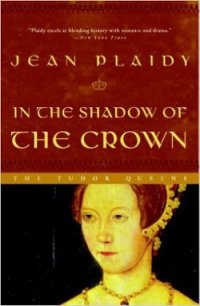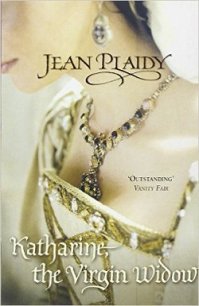The Sun in Splendour - Plaidy Jean (электронную книгу бесплатно без регистрации .txt) 📗
T know ... I know. But he is dangerous, Edward. And I think of the children . . . and of you too. I fear for us all.'
Edward was thoughtful. He said: 'Something must be done. Something shall be done.'
Edward began by sending Dr John Stacey and Thomas Burdett with Thomas Blake, a chaplain at Stacey's college, for trial. They were found guilty of practising magic arts for sinister purposes, and condemned to be hanged at Tyburn. As was usual in these cases the sentence was to be carried out immediately. However, the Bishop of Norwich interceded for Blake, who he said was involved simply because of his association with Stacey's college and it had not been proved that he was actually aware of what was taking place.
Blake was pardoned. The other two, protesting their innocence to the last, were hanged. It was clear from what had happened and the fact that Burdett was a member of Clarence's household that the King meant to teach his brother a lesson. Edward suspected the source of the rumours which were circulating about him. If Clarence thought that after having been forgiven once he would be so again he would be mistaken. Edward's feelings towards him were hardening every day.
Edward went to Windsor after the trial. Clarence stayed in London and he took advantage of Edward's absence to seek out a
preacher, one Dr John Goddard, to force his way into a council meehng at Westminster to read the declarations of innocence made by Stacey and Burdett before their deaths.
This was a wild and reckless act, for John Goddard was the Franciscan who had declared Henry the Sixth to be the true King in 1470 when Warwick with Clarence had come to oust Edward from the throne.
After the protestations had been read before an astonished council Clarence then began gathering men about him; he declared that not only was the King a bastard but that he practised black arts and was planning to poison him, his brother Clarence, because he knew too much. He went to Cambridgeshire and declaimed in the market-square that the King had no right to the throne and if men would rally to him they would soon have the true King on the throne and the imposter replaced.
The people listened open-mouthed. Why should they rise against a king who had brought the country to a state of prosperity which it had not enjoyed for a very long time. It was exciting to listen to Clarence; a few hotheads joined him; but even they did not stay.
Meanwhile Edward in Windsor received news of what was happening. He returned to London and summoned Parliament for the purpose of bringing charges of high treason against his brother.
The King spoke with eloquence and sadness. They would all remember that he had been notoriously generous to his enemies even those who were guilty of heinous treason. His clemency had not been well rewarded. Now a much more malicious and unnatural treason was conspiring against him.
'My own brother's hand is against me. He, above all others, owes me love and loyalty. I have rewarded him most generously, with grants, goods and possessions, yet he plots to destroy me and my family. He has urged his servants round the country to tell the people that Burdett had been unjustly executed; he declared that I am a bastard; he holds in his possession an agreement made in the year 1470 which stated that if Henry the Sixth died without heirs he should be the next in the line of succession. My lords,' went on the King, 'you see the dilemma in which I am placed. Many times have I forgiven the Duke, my brother; and again and again he has flouted my friendship. I am considering now the safety of the realm and I think that my brother is a danger
to us. I therefore ask you to pass upon him a sentence of high treason and to deprive him of all his estates and properties which have been granted to him by the Crown.'
None stood against the King's accusations and consequently Clarence was arrested. Clarence blusteringly offered to settle the matter by single combat which offer was ignored by the King. There was no one who came forward to defend him or to show that there was not complete agreement with the King's request.
The Duke of Buckingham, as steward of England, pronounced the death sentence and Clarence was lodged in the Tower.
Now that Clarence was under lock and key Edward found it difficult to bring the matter to conclusion. Clarence had been sentenced to death; he was undoubtedly guilty; and yet he was Edward's brother. There were so many memories of the bright little boy. He had been so handsome in his youth before dissipation and in particular heavy drinking had marred his good looks. He had had a certain charm too. He was wild and reckless; he said whatever came into his mind without considering the consequence. Edward had loved the boy. He had always been aware of the sterling qualities of Richard but it was George who had had the charm, the power to draw people to him which Edward himself had to an even greater extent. Of course he had been more fond of Richard because of Richard's admiration for himself and he had quickly realized that his younger brother was loyal and to be trusted. But that did not mean he did not love George. They had been a devoted family. How then could he give the order for his brother's execution? Yet to fail to do so might bring disaster to the country. While he himself lived in all his strength, Edward could not believe that anything could go wrong. But what if he were to die? And who knew from one day to the next when the call would come? He had a young son, a minor . . . what would happen to him if Clarence were to claim the throne declaring that Edward had been a bastard. No, Clarence had to die. He must steel himself. Forget he was his brother, remember only that he was a traitor.
But he put off giving the order.
Elizabeth was clearly pleased because Clarence had been judged guilty. It was a great weight off her mind, she said; and
she could now concentrate her thoughts on the betrothal of her second son by Edward Richard Duke of York. Richard was five years old—young to be a bridegroom; but then the bride was only a year older. She was Anne Mowbray, one of the richest girls in the kingdom and it was for this reason that she was marrying the Duke of York.
Elizabeth excelled a^feuch rimes. She was delighted with the marriage; her eldest daughter, Madame la Dauphine as Elizabeth insisted she be called, was most happily destined for the throne of France. Her eldest son by Edward would be King, and dear little Richard was going to collect a handful of ritles and estates through his rich marriage. Clarence was disposed of. She wondered how she could prevail on Edward to give the final word. It was folly to wait. What if Clarence escaped from the Tower? It was difficult though to work on Edward, and to appear to suggest to him what he should do. She only resorted to that in cases of dire necessity and she had already helped to make Edward aware of how dangerous Clarence was.
But first the wedding, and after that Clarence must die.
The little girl was now at Westminster Palace in the apartments of the Queen's chamber, and she would be led to St. Stephen's Chapel by Lord Rivers. Elizabeth was always anxious that her family should play big parts in these affairs.
The beautiful chapel was decorated with blue hangings spattered with golden fleur-de-lys. The King and the Queen were with their children about them—all beautiful and golden-haired like their mother, and it would have been surprising if they had not been good-looking with such handsome parents.
Elizabeth took her little son by the hand and led him to the altar. The little girl was taken there by Lord Rivers and the King himself gave her in marriage to his son. Richard of Gloucester was present and when they came out of the chapel it was his task to scatter gold coins among the crowd.




